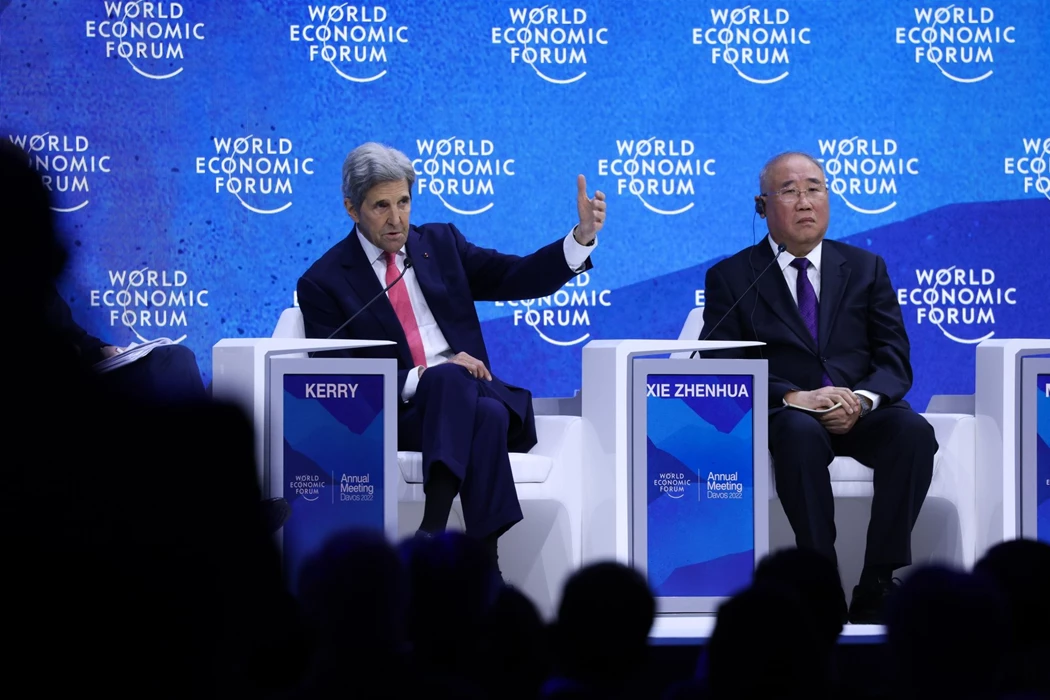China, US Resume Climate Work in Latest Sign of Better Relations
(Bloomberg) -- The US and China have resumed formal talks on climate change, amid friction over whether -- and how much -- the world’s top greenhouse gas emitters should contribute to helping nations bearing the brunt of global warming.
China’s climate envoy Xie Zhenhua confirmed renewed collaboration between the two countries during a press briefing on Saturday, as tensions between developing and developed nations strain negotiations at the COP27 summit in Egypt.
The thawing of relations between the two countries follows a meeting between US President Joe Biden and Chinese President Xi Jinping at the Group of 20 meeting in Indonesia earlier this week. US-China cooperation on the issue in 2014 provided a critical foundation for the the Paris Agreement a year later, and elements of a joint statement issued by the two countries last year were adopted in the Glasgow accord.
Xie said the two countries agreed on putting on the formal negotiating agenda the issue of how to address the losses and damages developing nations are experiencing as a consequence of climate change. But he stressed that any new deal on the issue should mirror the Paris Agreement by putting the onus on developed countries to contribute. “The responsibility of providing funding lies in developed countries, and it is their responsibility and obligation,” Xie said. “Developing countries can contribute on a voluntary basis. The Paris Agreement has made it very clear.”
The question of whether high-emitting developing nations such as China should contribute is a source of friction in Sharm El-Sheikh. The EU is pushing for formal language to expand the donor base for any new loss and damage program. And the US has repeatedly said China should contribute funding to any loss and damage program.
When it comes to who receives support, Xie said it should be available to developing nations but prioritized for the most “fragile” countries. He said China has provided support to other developing nations, in the form of help for early warning systems, low-carbon projects and renewable energy development.
Xie said that discussions with his US counterpart, John Kerry, will keep carrying on after the COP27 summit in Sharm El-Sheikh concludes. “We have agreed that after this COP we will continue our formal consultation,” he said.
For now, the climate envoys have been meeting in the evenings, continuing a working relationship Xie said was more than 20 years in the making. The US-China talks have been “candid, friendly, positive” and marked by “active dialogue,” Xie said.
Late Thursday evening, Kerry spent at least two and a half hours meeting with Xie behind closed doors. As of at least Friday evening, Kerry has been isolating after testing positive for Covid-19.
Xie also praised the work of the Egyptian presidency that is shepherding negotiations, but has also been criticized for not engaging ministers early enough and depriving them of critical drafted text.
The Egyptian presidency has led an “open and transparent” process toward consensus, Xie said. “They are all working very hard to promote the process of this conference.”
--With assistance from .
More stories like this are available on bloomberg.com
©2022 Bloomberg L.P.
KEEPING THE ENERGY INDUSTRY CONNECTED
Subscribe to our newsletter and get the best of Energy Connects directly to your inbox each week.
By subscribing, you agree to the processing of your personal data by dmg events as described in the Privacy Policy.
More renewables news

With Trump Looming, Biden’s Green Bank Moves to Close Billions in Deals

GE Vernova Expects More Trouble for Struggling Offshore Wind Industry

Climate Tech Funds See Cash Pile Rise to $86 Billion as Investing Slows

GE Vernova to Power City-Sized Data Centers With Gas as AI Demand Soars

Longi Delays Solar Module Plant in China as Sector Struggles

Australia Picks BP, Neoen Projects in Biggest Renewables Tender

SSE Plans £22 Billion Investment to Bolster Scotland’s Grid

A Booming and Coal-Heavy Steel Sector Risks India’s Green Goals

bp and JERA join forces to create global offshore wind joint venture
















